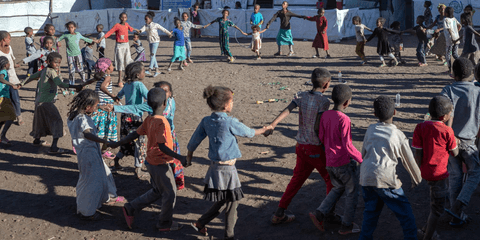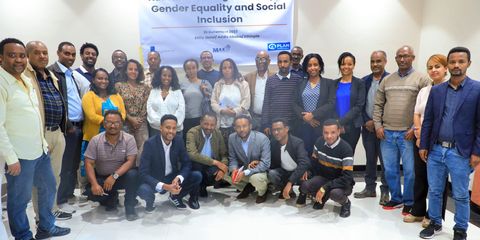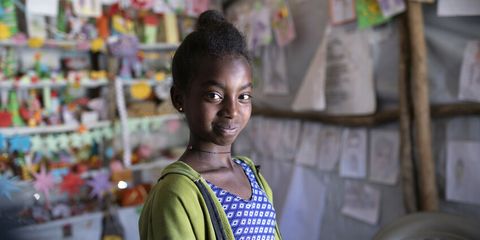Community-based child protection for South Sudanese refugees in Ethiopia
Community-based child protection as a strategy for protecting South Sudanese refugee children: A case study from Gambella, Ethiopia
This case study describes the role of community-based child protection committees in improving the safety and protection of children in 3 refugee camps in Gambella, Ethiopia.
This case study describes the role of community-based child protection committees in improving the safety and protection of children in 3 refugee camps in Gambella, Ethiopia.
In December 2013, widespread violence in South Sudan led nearly 300,000 people to flee the country, across the border into Western Ethiopia. Over 80% of the refugees are women and children. The refugee girls and boys face high risks, both during their journey into Ethiopia as well as upon arrival in the camps. Risks of family separation, sexual violence and psychosocial distress are common.
From 2014, Plan International has been responding to the humanitarian needs of children in refugee camps in Kule, Jewi and Pugnido. These camps have a total population of nearly 130,000 refugees, of whom more than 60% are children.
One of the most effective, community-based strategies to strengthen the prevention and response to violence, abuse, neglect and exploitation of children in the camps, was the establishment of Child Protection Committees (CPC).
The aim of the CPCs was to mobilise and sensitise the community on child protection concerns and to ensure effective identification of children and families at-risk for referral and support. The CPCs were composed of representatives of existing community structures and were linked to other community groups and services available to support the needs of children.
Two years of intensive work by the CPCs in the refugee camps have shown positive impact on the protective environment in the camps. More child protection concerns and violations are being reported in a timely way so that children can be referred to appropriate services and receive the support they need. The CPCs have also greatly contributed to the prevention of child protection issues through engaging local leaders, children, youth and parents in prevention work and response to early signs of child abuse and neglect. Plan International‘s approach to play a facilitating and supporting role to guide the CPCs, has enabled CPCs to progressively take ownership and leadership in their own protection work.
Download options
Report
772 kb
Categories: Emergencies


